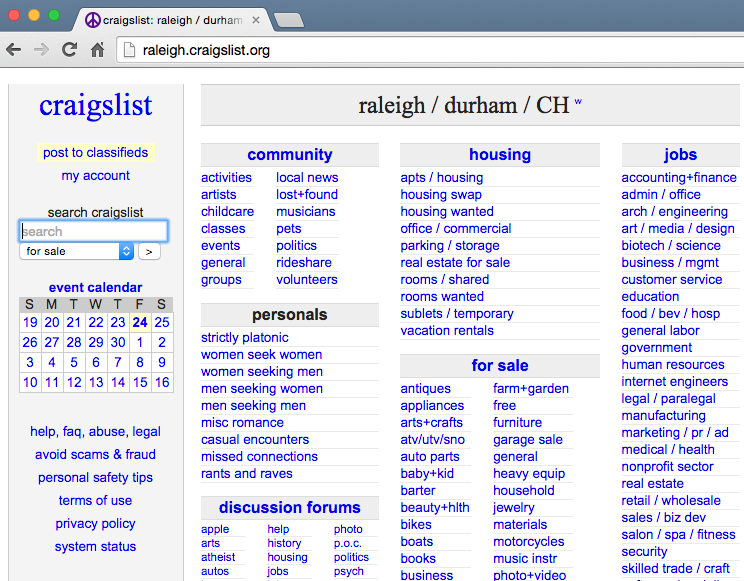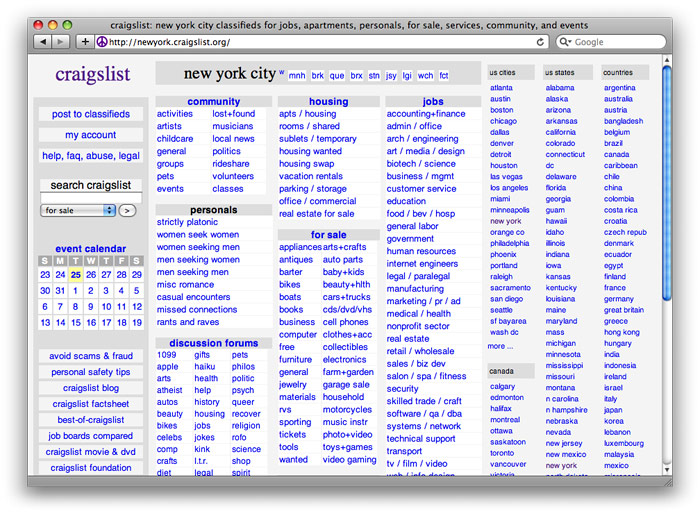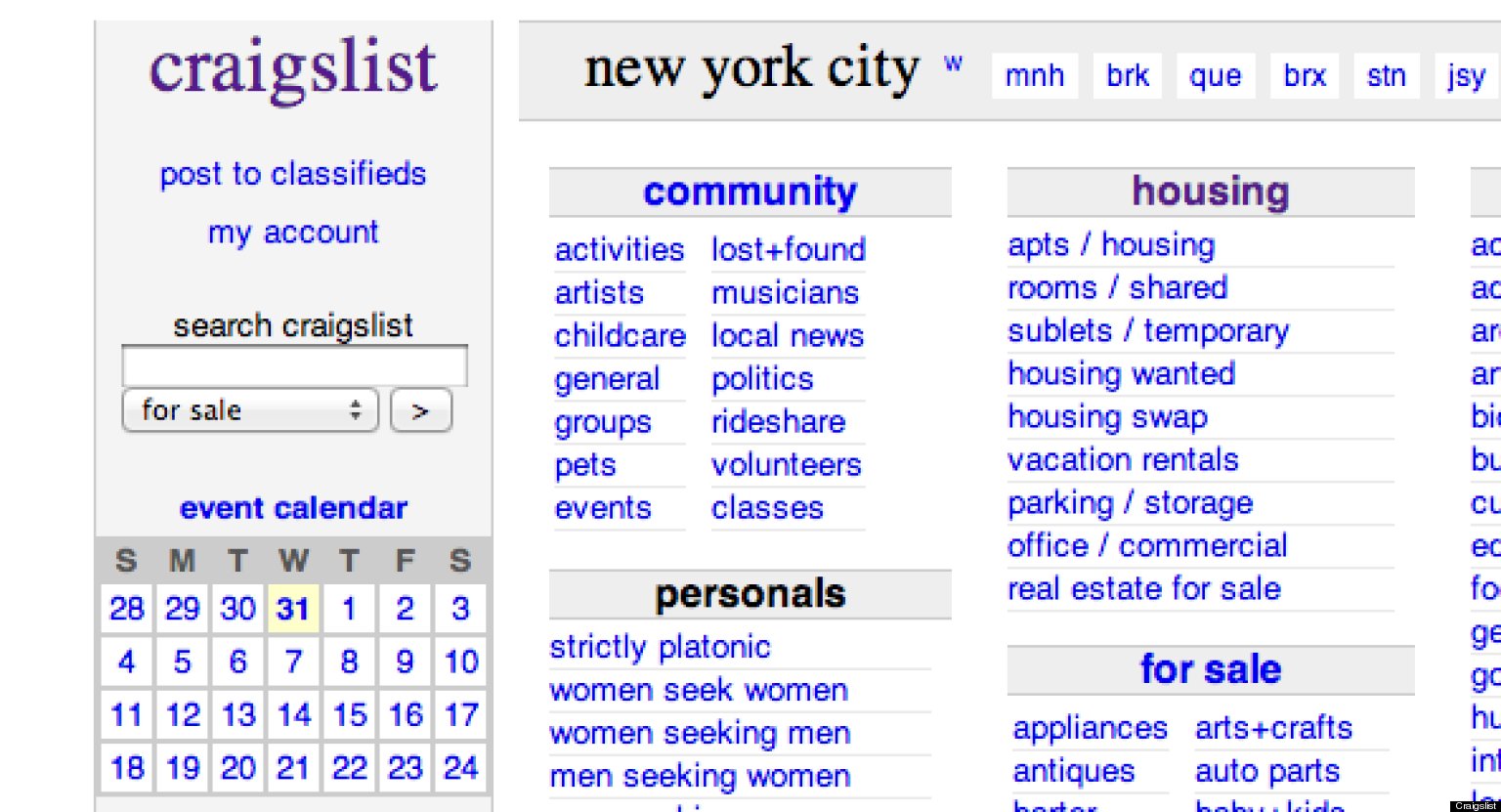Craigslist Free Vehicles: Unlocking Hidden Opportunities (and Hidden Costs) pickup.truckstrend.com
The allure of "free" is powerful, especially when it comes to something as substantial as a vehicle. On platforms like Craigslist, listings for "free cars," "junk cars," or "take it away" vehicles frequently pop up, promising a no-cost acquisition. But what exactly does "Craigslist Free Vehicles" entail, and is it truly a golden ticket or a deceptive mirage? This comprehensive guide will dissect the phenomenon of free vehicles on Craigslist, exploring their nature, benefits, the often-overlooked challenges, and practical advice for anyone considering this unique path to vehicle ownership or parts acquisition.
At its core, a "free vehicle" on Craigslist is typically a car, truck, or van that an owner wants to dispose of quickly and without incurring disposal fees. These aren’t usually turn-key daily drivers. Instead, they are often non-running, heavily damaged, incomplete, or otherwise problematic vehicles that would cost the current owner money to tow away or scrap. For the savvy individual, however, these listings represent a unique opportunity: a chance to acquire a project car, a valuable source of parts, a learning experience, or even a pathway to a functional vehicle with significant effort and investment. Understanding this distinction – that "free" refers only to the initial acquisition, not the total cost of ownership or repair – is the first crucial step in navigating the world of Craigslist free vehicles.
Craigslist Free Vehicles: Unlocking Hidden Opportunities (and Hidden Costs)
Understanding the "Free" Proposition: What to Expect
When you encounter a "free vehicle" listing, temper your expectations immediately. These are almost never road-ready machines. The term "free" signifies the seller’s primary motivation: to offload the vehicle without hassle or expense. Common conditions you’ll find include:
- Non-Running or Mechanically Challenged: The engine might be seized, the transmission faulty, or critical components missing. This is the most common reason for a free listing.
- Significant Body Damage or Rust: Vehicles might have been in an accident, or succumbed to years of neglect, leading to extensive rust, dents, or missing panels.
- No Title or Salvage This is a major hurdle. A clean, transferable title is rare. Often, sellers have lost the title, or the vehicle has a salvage title due to previous damage, making registration difficult.
- Abandoned or Unwanted Projects: Sometimes, it’s a vehicle someone started working on and abandoned, leaving it in various states of disassembly.
- Parts Cars: The seller may explicitly state it’s for parts only, meaning it’s likely incomplete or beyond economical repair.

The motivation for giving away such a vehicle is simple: avoiding towing fees, avoiding scrap yard charges, clearing property, or simply not wanting the headache of selling a non-functional item.
Benefits of Acquiring a "Free" Vehicle

Despite the challenges, there are legitimate upsides for the right individual:
- Zero Initial Acquisition Cost: This is the most obvious benefit. You get the vehicle for nothing, saving potentially hundreds or thousands of dollars upfront.
- Source for Parts: Many free vehicles are excellent "donor" cars. If you own a similar make and model, a free vehicle can provide a treasure trove of spare parts for repairs, saving you money on new components.
- Learning Opportunity: For aspiring mechanics or hobbyists, a free vehicle is an unparalleled hands-on learning experience. You can tear it down, diagnose issues, and attempt repairs without the pressure of potentially damaging an expensive asset.
- Project Car Potential: With enough skill, time, and budget, a free vehicle can be transformed into a unique custom build, a classic restoration, or even a reliable daily driver.
- Environmental Benefit: By taking a vehicle that might otherwise be scrapped or abandoned, you’re essentially recycling and repurposing, giving it a second life.

Navigating Craigslist: How to Find Free Vehicles
Finding these elusive free vehicles requires a bit of strategy:
- Specific Search Terms: Don’t just search for "car." Use terms like "free car," "junk car," "parts car," "take it away," "scrap car," "free truck," or "project car."
- Filter by Price: On Craigslist, go to the "For Sale" section, then select "Cars & Trucks." Look for a "price" filter and input "0" for both minimum and maximum.
- Check "Free" Section: Some sellers might list them under the general "Free" section rather than "Cars & Trucks."
- Regular Monitoring: Free vehicles go fast. Check Craigslist frequently, even multiple times a day.
- Expand Your Search Radius: If you’re willing to travel or pay for longer-distance towing, expand your search to nearby cities or regions.
The Due Diligence Checklist: Before You Commit
Before you jump at the chance to take a "free" car, thorough due diligence is paramount. This is where you save yourself from turning a "free" acquisition into a financial black hole.
-
Communicate Thoroughly with the Seller:
- Why are they giving it away? (Avoids disposal fees, clearing property, etc.)
- What is the exact condition? (Does it run? What’s wrong with it? Any major damage?)
- What is the title status? (Crucial question – clean title, salvage, or no title?)
- Where is it located? (Is it accessible for towing?)
- Is anything missing? (Parts, keys, etc.)
-
Inspect the Vehicle (If Possible):
- Visual Inspection: Look for major rust (especially frame), significant collision damage, missing vital components (engine, transmission), and overall completeness.
- Fluid Levels: Check oil, coolant, and brake fluid if accessible (though often not relevant for non-runners).
- Tires: Are they inflated? Are they dry-rotted beyond repair?
- Interior: Check for mold, water damage, or excessive animal infestation.
-
Understand Title Status – The Most Critical Factor:
- Clean The holy grail, but very rare for free vehicles. If it has one, verify it matches the VIN and is signed over correctly.
- Salvage Indicates the vehicle was deemed a total loss by an insurance company. It can be registered after repairs and inspection, but resale value and insurance options may be limited.
- No This is the biggest red flag. Acquiring a vehicle without a title can be a nightmare. In most states, you cannot legally register or drive a car without a title. While some states offer options like bonded titles for lost titles, the process is complex, time-consuming, and not guaranteed. Proceed with extreme caution or avoid entirely if no title is available. Do not assume you can "just get one."
-
Plan for Logistics:
- How will you move it? Most free vehicles require towing. Factor in the cost of a flatbed tow truck or renting a car dolly/trailer if you have a capable tow vehicle.
- Where will you store it? Do you have space for a non-running vehicle that might sit for months or years?
The Hidden Costs: It’s Never Truly "Free"
The initial "free" acquisition is just the beginning. Be prepared for a range of expenses:
| Item/Cost Category | Description | Typical Range (USD) | Notes |
|---|---|---|---|
| Towing/Transportation | Getting the non-running vehicle from the seller’s location to yours. | $50 – $500+ | Varies significantly by distance, vehicle size, and the towing company’s rates. A flatbed is often required. |
| Title Transfer Fees | State-mandated fees to transfer vehicle ownership into your name. | $20 – $100 | Varies by state. Only applicable if a valid, transferable title is provided. |
| Registration Fees | Annual or biennial fees to legally register the vehicle for road use. | $50 – $200+ | Varies by state and vehicle type. Only applicable once the vehicle is roadworthy and titled. |
| Vehicle Insurance | Liability and/or comprehensive insurance coverage once the vehicle is drivable and registered. | $50 – $200+/month | Varies by driver, vehicle type, coverage limits, and location. |
| Basic Maintenance | Essential fluids (oil, coolant, brake fluid), filters, spark plugs, belts, hoses, and a new battery. | $100 – $300+ | Crucial for any vehicle that has been sitting. A dead battery is almost guaranteed. |
| Tires | Replacement of worn, flat, or dry-rotted tires. | $300 – $800+ | Critical for safety and drivability. Often overlooked but necessary. |
| Major Mechanical Repairs | Engine overhaul, transmission replacement, brake system overhaul, suspension components, electrical diagnostics, fuel system cleaning. | $500 – $5000+ | This is the most unpredictable and potentially highest cost. It requires significant skill, tools, or professional mechanic fees. |
| Bodywork/Rust Repair | Repairing dents, rust holes (especially structural), or repainting. | $200 – $2000+ | Varies from minor cosmetic fixes to extensive fabrication work, depending on the damage. |
| Tools & Equipment | If you plan to do the work yourself, you’ll need a basic set of mechanics tools, a jack, jack stands, and potentially specialized diagnostic equipment. | $100 – $1000+ | An initial investment if you don’t already have them. |
| Disposal/Scrap Fees | If you acquire it for parts and need to dispose of the remaining shell, or if the project becomes too costly and you need to scrap it. | -$50 to $200 | Scrap yards may pay you a small amount for the metal, or they may charge a pickup/disposal fee, depending on current metal prices and the vehicle’s weight/completeness. |
Common Challenges and Solutions
- No This is the most common deal-breaker.
- Solution: Unless you are certain your state has a straightforward, legal process for obtaining a title for an abandoned vehicle (like a bonded title), or you only need it for parts and will never register it, walk away. Research your state’s DMV laws thoroughly before acquisition.
- Major Mechanical Issues: Overestimating your repair capabilities or underestimating the cost.
- Solution: Get a realistic assessment. If possible, have a mechanic friend look at it. Be honest about your budget and skill level. Don’t be afraid to scrap it if the costs become prohibitive.
- Logistical Nightmares: Difficulty picking up, or no space to store.
- Solution: Always confirm pickup logistics before committing. Ensure you have adequate space and a plan for storage, especially if it’s a long-term project.
- Time Commitment: Projects can drag on for months or years.
- Solution: Be realistic about the time you can dedicate. Break down the project into smaller, manageable tasks. Don’t let it become a permanent lawn ornament.
- Competition: Good "free" deals disappear quickly.
- Solution: Be prepared to act fast. Have your towing plan ready, and be responsive to the seller.
Tips for Success
- Be Realistic: Understand that "free" means "broken." Expect significant work and expense.
- Have a Clear Plan: Are you using it for parts? A restoration project? A learning tool? Know your objective from the start.
- Verify the Title (or Lack Thereof): This cannot be stressed enough. No title equals major headaches.
- Bring Help and Proper Equipment: For pickup, always bring a friend and ensure you have the right towing setup.
- Safety First: When inspecting or working on the vehicle, prioritize safety. Use jack stands, wear appropriate PPE, and be aware of potential hazards.
- Network: Connect with local mechanics, car clubs, or online forums for advice and assistance.
Frequently Asked Questions (FAQ)
Q1: Is a "free vehicle" truly free?
A: The initial acquisition is free, but there are almost always significant hidden costs associated with towing, repairs, parts, title transfer, registration, and insurance. It’s an initial no-cost acquisition, not a free car.
Q2: Can I expect a running, drivable car for free?
A: Extremely rarely. Free vehicles are almost universally non-running, heavily damaged, or incomplete. If you find a running free car, it’s either a scam or has severe, immediate problems.
Q3: What if the free vehicle has no title?
A: This is a major issue. In most states, you cannot legally register, insure, or drive a vehicle without a valid title. While some states have processes for lost titles (like bonded titles), they are often complex, time-consuming, and costly. Unless you only need it for parts and will never register it, it’s often best to avoid vehicles without a title.
Q4: How quickly do free vehicles get claimed on Craigslist?
A: Very quickly, especially if they are a desirable make/model or appear to have salvageable parts. You need to act fast and be prepared to pick it up promptly.
Q5: Is it safe to pick up a free car from a stranger?
A: Exercise caution. Arrange to meet in a public place if possible, or bring a friend with you to the seller’s location. Be wary of suspicious listings or sellers who are overly secretive.
Q6: Can I just use a free vehicle for parts?
A: Yes, this is a common and often the most practical reason to acquire a free vehicle. Ensure you have adequate space to store the vehicle and a plan for legally disposing of the remaining shell once you’ve stripped the parts you need.
Q7: What paperwork do I need, even for a free car?
A: At minimum, request a bill of sale, even if the sale price is $0. This serves as proof of transfer of ownership. For legal registration and road use, you absolutely need a valid, transferable title.
Conclusion
Craigslist free vehicles present a fascinating dichotomy: an incredible opportunity for the resourceful and mechanically inclined, yet a potential money pit for the unprepared. While the initial "free" price tag is undeniably attractive, it masks a landscape of potential costs, logistical hurdles, and legal complexities.
For those with a clear plan, realistic expectations, a willingness to invest time and effort, and a solid understanding of title laws, a "free" vehicle can indeed be a gateway to a rewarding project, a valuable parts cache, or a unique learning experience. However, for the casual observer hoping for a simple, cost-free solution to transportation, the world of Craigslist free vehicles is more likely to offer a lesson in the true cost of "free." Approach with diligence, a healthy dose of skepticism, and a prepared budget, and you might just find your next great automotive adventure.
